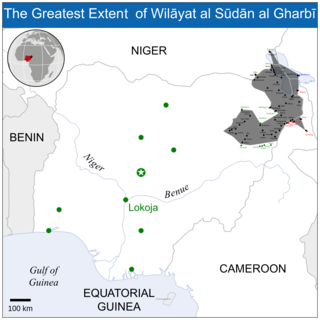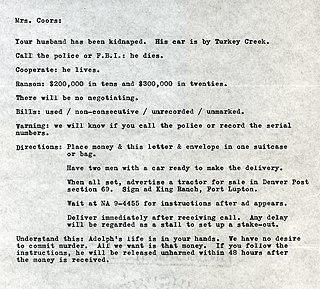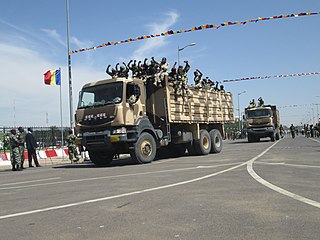
The Federal government of Nigeria is composed of three distinct branches namely the legislative, executive, and judicial, whose powers are vested and bestowed upon them by the Constitution of the Federal Republic of Nigeria, the National Assembly, the President, and lastly the federal courts, which includes the Supreme Court which is regarded as the highest court in Nigeria respectively. One of the major functions of the constitution is that it provides for separation and balance of powers among the three branches and aims to prevent the repetition of past mistakes made by the government, some other functions of the constitution includes that it divides power between the federal government and the states and it also protects various individual liberties of the citizens of the nation.
Nigeria is Africa's largest ICT market, accounting for 82% of the continent's telecoms subscribers and 29% of internet usage. Globally, Nigeria ranks 11th in the absolute number of internet users and 7th in the absolute number of mobile phones.

Maiduguri is the capital and the largest city of Borno State in north-eastern Nigeria. The city sits along the seasonal Ngadda River which disappears into the Firki swamps in the areas around Lake Chad. Maiduguri was founded in 1907 as a military outpost by the British and has since grown rapidly with a population exceeding a million by 2007.

The State Security Service (SSS), self-styled as the Department of State Services (DSS), is a security agency of Nigeria and one of three successor organisations to the National Security Organization (NSO). The agency is under the Presidency of the Federal Republic of Nigeria, and it reports its activities to the office of the NSA.

Goodluck Ebele Azikiwe Jonathan is a Nigerian politician who served as the President of Nigeria from 2010 to 2015. He lost the 2015 presidential election to former military head of state General Muhammadu Buhari, and was the first incumbent president in Nigerian history to concede defeat in an election. Prior to that, he served as Vice President of Nigeria from 2007 to 2010 under the administration of Umaru Musa Yar'Adua; and in oil-rich Bayelsa State as Governor of Bayelsa State from 2005 to 2007.
The Economic history of Nigeria falls into three periods. They are the: pre-colonial, the colonial and the post-colonial or independence periods. The pre-colonial period covers the longest the part of Nigerian history. The colonial period covers a period of 60 years,1900-1960 while the independence period dates from October 1, 1960.

Human rights in Nigeria are protected under the current constitution of 1999. While Nigeria has made major improvements in human rights under this constitution, the American Human Rights Report of 2012 notes several areas where more improvement is needed, which includes: abuses by Boko Haram, killings by government forces, lack of social equality and issues with freedom of speech. The Human Rights Watch's 2015 World Report states that intensified violence by Boko Haram, restrictions of LGBTIQ rights and government corruption continue to undermine the status of human rights in Nigeria.

Boko Haram, officially known as Jamā'at Ahl as-Sunnah lid-Da'wah wa'l-Jihād, is an Islamist militant organization based in northeastern Nigeria, which is also active in Chad, Niger, northern Cameroon, and Mali. Boko Haram was the world's deadliest terror group during part of the mid-2010s according to the Global Terrorism Index. In 2016, the group split, resulting in the emergence of a hostile faction known as the Islamic State's West Africa Province.

The Nigeria Police Force is the principal law enforcement and the lead security agency in Nigeria. Designated by the 1999 constitution as the national police of Nigeria with exclusive jurisdiction throughout the country, as at 2016 it has a staff strength of about 371,800. There are currently plans to increase the force to 650,000, adding 280,000 new recruits to the existing 370,000. The Nigeria Police Force is a very large organisation consisting of 36 State commands and Federal Capital Territory (FCT) grouped into 17 zones and 8 administrative organs. The agency is currently headed by IGP Usman Alkali Baba. In 2020, it underwent major overhauls.
Monguno is one of the LGAs Local Government Area of Borno State in northeastern Nigeria.

The Boko Haram insurgency began in July 2009, when the militant Islamist and jihadist rebel group Boko Haram started an armed rebellion against the government of Nigeria. The conflict is taking place within the context of long-standing issues of religious violence between Nigeria's Muslim and Christian communities, and the insurgents' ultimate aim is to establish an Islamic state in the region.
The 2015 Baga massacre was a series of mass killings carried out by the Boko Haram terrorist group in the north-eastern Nigerian town of Baga and its environs, in the state of Borno, between 3 January and 7 January 2015.

Starting in late January 2015, a coalition of West African troops launched an offensive against the Boko Haram insurgents in Nigeria.

Onofiok Akpan Luke//(listen) is a lawyer and legislator in the Nigerian House of Representatives.
Gender inequality refers to unequal treatment or perceptions of individuals wholly or partly due to their gender or sex. It arises from differences in socially constructed gender roles. Gender inequality in Nigeria is influenced by different cultures and beliefs. In most parts of Nigeria, women are considered subordinate to their male counterparts, especially in Northern Nigeria as well as in other sectors including the Nigeria music industry, politics, and education sector. It is generally believed that women are best suited as home keepers.

Kidnapping is a major problem in Nigeria in the early 21st century. Kidnapping by bandits and insurgents is among the biggest organised or gang crime in Nigeria and is a national security challenge.
The following is a list of events in 2020 in Nigeria.
Titilope Gbemisola Akosa, popularly known as Titilope Akosa, is a Nigerian environmentalist, climate justice advocate, lawyer, gender and social inclusive expert, and human rights activist. She is the founder and executive director for the non-governmental sustainability organization Centre for 21st Century Issues (C21st). She heads the law firm Titi Akosa & Co Nigeria. In 2015, she was the spokesperson for women and gender non-governmental organizations at the 2015 Paris Climate Treaty on the topic 'Towards a Gender Responsive Green climate fund in Africa'.

Operation Boma's Wrath was a military operation launched by Chad against Boko Haram. Operation was launched on March 31, 2020, one week after Boko Haram's attack on Chadian military base in which 92 Chadian soldiers were killed. Aim of the operation was to destroy hidden jihadist bases and repulse their forces out of Chad. Operation lasted 10 days and according to Chadian military it resulted in roughly 1000 insurgents killed, their bases in Chad destroyed, and capture of arms caches previously taken from Chad.










